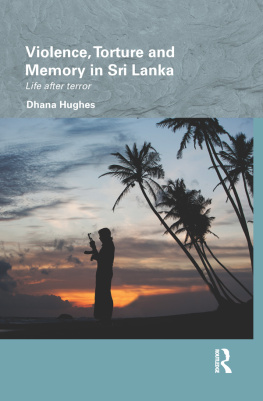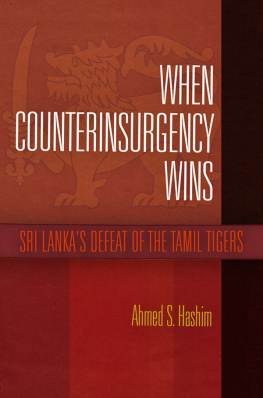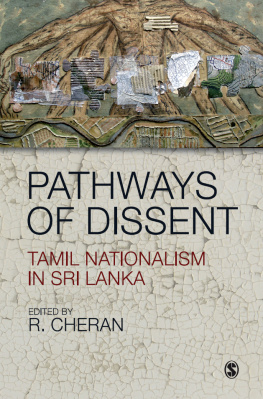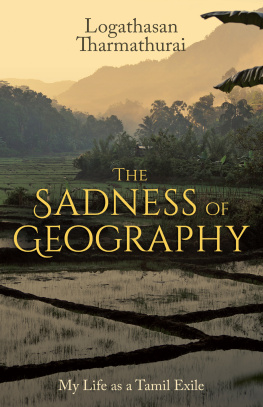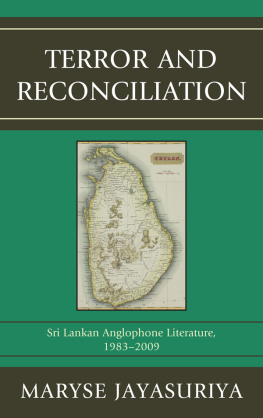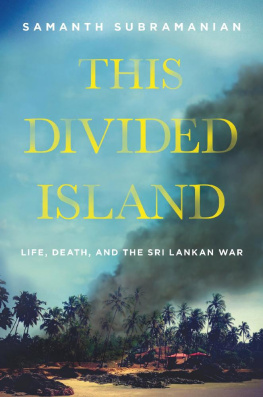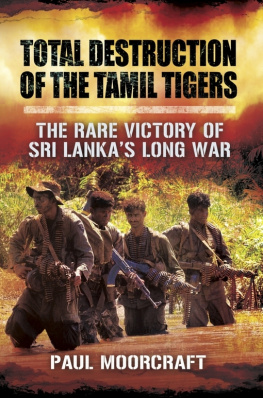Alex Argenti-Pillen - Masking Terror: How Women Contain Violence in Southern Sri Lanka
Here you can read online Alex Argenti-Pillen - Masking Terror: How Women Contain Violence in Southern Sri Lanka full text of the book (entire story) in english for free. Download pdf and epub, get meaning, cover and reviews about this ebook. City: Philadelphia, year: 2013, publisher: University of Pennsylvania Press, genre: Politics. Description of the work, (preface) as well as reviews are available. Best literature library LitArk.com created for fans of good reading and offers a wide selection of genres:
Romance novel
Science fiction
Adventure
Detective
Science
History
Home and family
Prose
Art
Politics
Computer
Non-fiction
Religion
Business
Children
Humor
Choose a favorite category and find really read worthwhile books. Enjoy immersion in the world of imagination, feel the emotions of the characters or learn something new for yourself, make an fascinating discovery.

- Book:Masking Terror: How Women Contain Violence in Southern Sri Lanka
- Author:
- Publisher:University of Pennsylvania Press
- Genre:
- Year:2013
- City:Philadelphia
- Rating:5 / 5
- Favourites:Add to favourites
- Your mark:
Masking Terror: How Women Contain Violence in Southern Sri Lanka: summary, description and annotation
We offer to read an annotation, description, summary or preface (depends on what the author of the book "Masking Terror: How Women Contain Violence in Southern Sri Lanka" wrote himself). If you haven't found the necessary information about the book — write in the comments, we will try to find it.
In Sri Lanka, staggering numbers of young men were killed fighting in the armed forces against Tamil separatists. The war became one of attritionyear after year waves of young foot soldiers were sent to almost certain death in a war so bloody that the very names of the most famous battle scenes still fill people with horror. Alex Argenti-Pillen describes the social fabric of a rural community that has become a breeding ground and reservoir of soldiers for the Sri Lankan nation-state, arguing that this reservoir has been created on the basis of a culture of poverty and terror.
Focusing on the involvement of the pseudonymous village of Udahenagama in the atrocities of the civil war of the late 1980s and the interethnic war against the Tamil guerrillas, Masking Terror describes the response of women in the rural slums of southern Sri Lanka to the further spread of violence. To reconstruct the violent backgrounds of these soldiers, she presents the stories of their mothers, sisters, wives, and grandmothers, providing a perspective on the conflict between Sinhalese and Tamil populations not found elsewhere.
In addition to interpreting the impact of high levels of violence on a small community, Argenti-Pillen questions the effects of trauma counseling services brought by the international humanitarian community into war-torn non-Western cultural contexts. Her study shows how Euro-American methods for dealing with traumatized survivors poses a threat to the culture-specific methods local women use to contain violence.
Masking Terror provides a sobering introduction to the difficulties and methodological problems field researchers, social scientists, human rights activists, and mental health workers face in working with victims and perpetrators of ethnic and political violence and large-scale civil war. The narratives of the women from Udahenagama provide necessary insight into how survivors of wartime atrocities reconstruct their communicative worlds and disrupt the cycle of violence in ways that may be foreign to Euro-American professionals.
Alex Argenti-Pillen: author's other books
Who wrote Masking Terror: How Women Contain Violence in Southern Sri Lanka? Find out the surname, the name of the author of the book and a list of all author's works by series.

